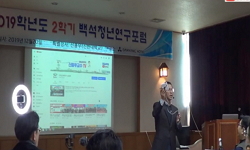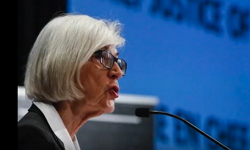This paper aims to analyze the modernity practices of Korean modern poets during the Japanese Colonial Period. To this end, the concept of modernity is changed from the ideology understanding of ‘brain’ to the emotions and the experiences of 'mind...
http://chineseinput.net/에서 pinyin(병음)방식으로 중국어를 변환할 수 있습니다.
변환된 중국어를 복사하여 사용하시면 됩니다.
- 中文 을 입력하시려면 zhongwen을 입력하시고 space를누르시면됩니다.
- 北京 을 입력하시려면 beijing을 입력하시고 space를 누르시면 됩니다.
https://www.riss.kr/link?id=A106868855
- 저자
- 발행기관
- 학술지명
- 권호사항
-
발행연도
2020
-
작성언어
-
-
주제어
Modernity ; Korean Modern Poet ; Japanese Colonial Period ; Im Hwa ; 임화 ; Jeong Jiyong ; 정지용 ; Baek Seok ; 백석 ; Ideology ; Experience ; Emotion
-
자료형태
학술저널
-
수록면
459-480(22쪽)
- 제공처
-
0
상세조회 -
0
다운로드
부가정보
다국어 초록 (Multilingual Abstract)
This paper aims to analyze the modernity practices of Korean modern poets during the Japanese Colonial Period. To this end, the concept of modernity is changed from the ideology understanding of ‘brain’ to the emotions and the experiences of 'mind' and ‘body'.
Thus, this paper specifically analyzes the creative worlds of three modern Korean poets: Im Hwa(임화), Jeong Jiyong(정지용), and Baek Seok(백석). First, in Im Hwa's “My Brother and the Fire” modernity as a ideology is understood through ‘brain’, depicting the subaltern life and perspectives of the future. Second, Jeong Jiyong, in “Nostalgia” depicted modernity and expressed experiences and emotions through ‘body’ and ‘mind’ by using the language of imagery and refined poetry to visualize modernity. Third, Baek Seok, in his “The Palwon: Collection of Westbound Poems 3” explained personal experiences and emotions through modernity ‘body’ and ‘mind’.
In conclusion, this paper reveals that during the Japanese Colonial Period, Korean poets practiced modernity in Korean modern literature with characteristics such as ‘cultural goods’, ‘pluralism’, and ‘literature as a racial movement’.
동일학술지(권/호) 다른 논문
-
- 서울대학교 국어교육과
- 민현식 ( Min Hyunsik )
- 2020
-
- 서울대학교 국어교육과
- 강보선 ( Kang Bosun )
- 2020
-
- 서울대학교 국어교육과
- 최은규 ( Choi Eun Kyu )
- 2020
-
최근 신문기사의 표현 양상 - ‘조ㆍ중ㆍ동ㆍ경ㆍ한’ 신문을 중심하여 -
- 서울대학교 국어교육과
- 박갑수 ( Park Kap-su )
- 2020





 KISS
KISS




